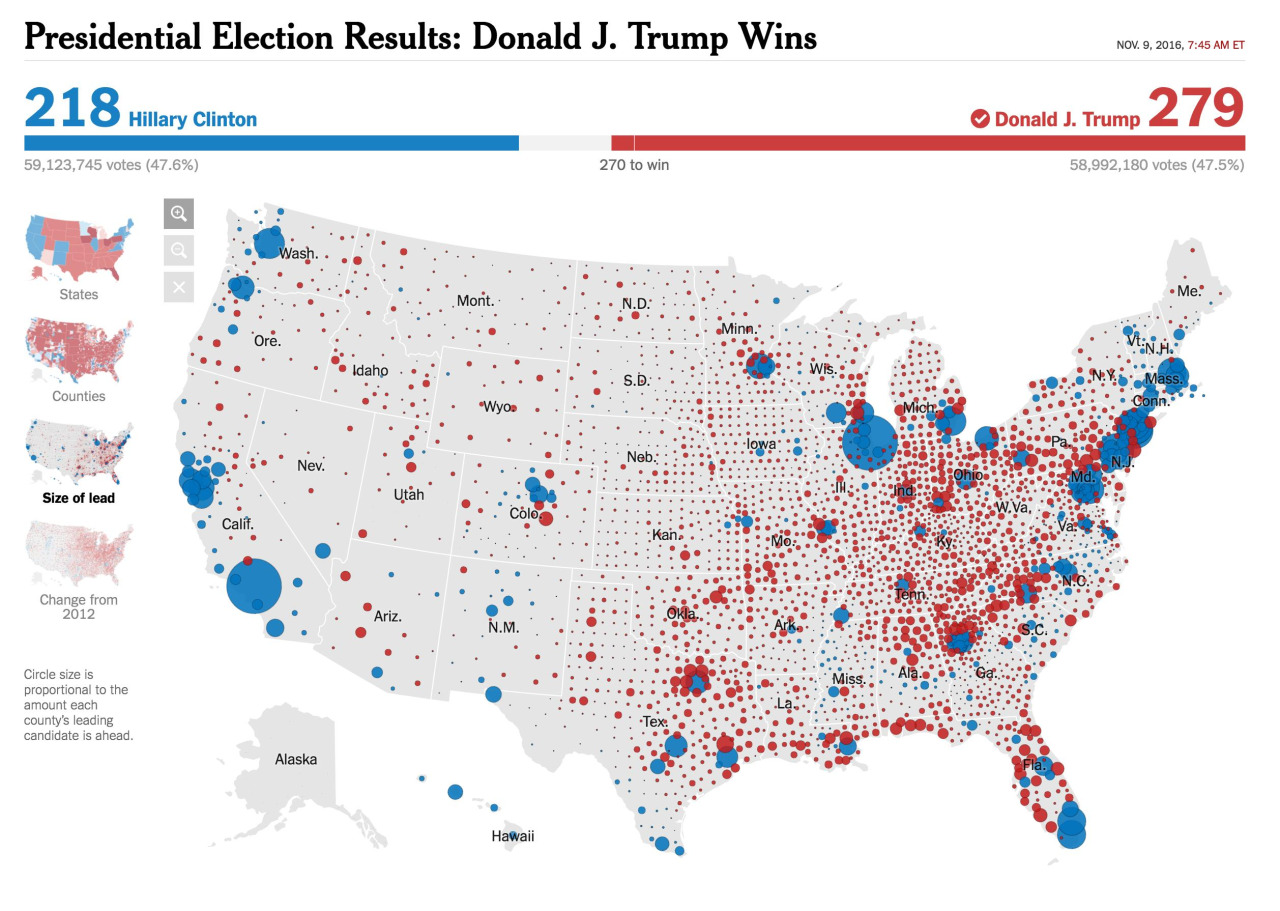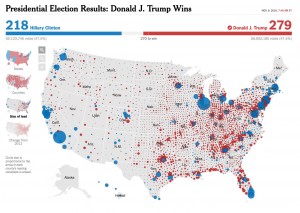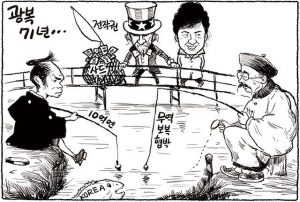Hillary Clinton & Park Geun-hye: a progressive feminist analysis of presidential politics in the US & Korea
by Pauline Park
Park Geun-hye is the first woman elected president of the Republic of Korea as well as the first president of the republic to be impeached. Hillary Clinton was the first woman to be nominated by the Democratic Party to run for president of the United States and won the popular vote by nearly three million votes in November 2016 but lost the electoral college to Donald Trump because she fell 107,000 votes short in just three key ‘swing’ states (Wisconsin, Michigan and Pennsylvania).
The impeachment of Park Geun-hye and the defeat of Hillary Clinton have prompted some feminists to cry foul and blame sexism for these developments; but can we explain them solely or even primarily with reference to misogyny? It seems to me that this question can only be answered by disentangling various threads and re articulating the question as at least three separate interrogatories. First, did sexism or misogyny lead the South Korean parliament to impeach Park Geun-hye and lead to American voters to reject Hillary Clinton in favor of Donald Trump? Second, are women inherently feminist and progressive? And third, is the election of a woman as the first president of the Republic of Korea or the United States necessarily a feminist victory in and of itself?
In the Korean case, we have those who point to sexist jibes being chanted in the crowds in Gwanghwamun near the Blue House demanding Park Geun-hye’s resignation; is this conclusive proof that there was no credible scandal but only an enormous wave of misogyny that led to Park’s impeachment in 2016? Difficult to believe, given that South Korean voters elected Park president in 2012 by a narrow majority of 51.6%; while there is no doubt that there are elements of misogyny in South Korean society, but such misogyny did not prevent the election of a woman as president five years ago, and Park’s fall to 4% approval in December 2016 can hardly be explained solely with reference to sexism, especially given that she had risen to a 63% approval rating as late as July 2013; ignoring the impact of the Sewol ferry disaster and the Choi Soon-sil scandal and attributing Park’s unpopularity solely to antipathy to women in Korean society is entirely unpersuasive. Rather, Park’s fall from power has to be understood in the context of the incomplete democratization of the Republic of Korea in the last three decades, following decades of military rule, including by her father, Park Chung-hee, who pursued the most successful industrialization of any national economy in the twentieth century, but at enormous cost to labor and human rights as well as the environment.
In fact, Park Geun-hye was elected precisely because of nostalgia for her father’s rule, especially by older Koreans who remembered the poverty that Korea was mired in before his taking power in a coup d’état in May 1961. Far more important than gender in understanding Park Geun-hye’s rise and fall is class: as the daughter of the dictator, growing up in the Blue House, she had the most privileged upbringing of any Korean child in the 1960s and 1970s; and her father’s symbiotic relationship with the chaebol – the huge conglomerates run by family dynasties that Park Chung-hee made enormously wealthy and powerful through his crash state-led industrialization – gave her the most effective base for gaining power through election in the post-dictatorship period. Indeed, Park Geun-hye’s relationship with Samsung and the other chaebol is a central cause of the deep resentment towards her by ordinary Koreans, both men and women, and the vast corruption revealed by the Choi Soon-sil scandal and not ‘sexism’ is what brought her down.
The Hankyoreh (the progressive Korean daily) ran this cartoon (8.14.16) to lampoon the dangerous game Park Geun-hye was playing in her foreign policy.
There are of course many differences between Park Geun-hye and Hillary Clinton, but there are also striking similarities, including the fact that they both came into office because of their relationship with the most powerful men in their families – in Park’s case, that with her father; and in Hillary Clinton’s case, that with her husband, Bill Clinton, who was elected governor of Arkansas and then president of the United States; it is simply inconceivable that Hillary would have been considered a serious candidate for the United States Senate from New York – a state in which she had never lived when she ran for that office in 2000 – had she not been First Lady from 1993-2000, a status U.S. Rep. Charles Rangel explicitly referred to when recruiting her to run in that year.
Even more important to consider is the fact that both Park Geun-hye and Hillary Clinton have been associated with right-wing politics and policy-making that have on balance been counter to the needs and interests of women, regardless of the symbolism of the election of the former as president and the nomination of the latter as a presidential candidate. Park’s scheme to undermine labor rights by giving employers a free hand to terminate workers prompted massive protests in 2015 (“Massive crowd protest in South Korea against Park’s labor reform plans,” Reuters, 11.14.15), as did her plan to censor history textbooks in order to re-write the history of her father’s brutal dictatorship, which became notorious for human rights abuses (Agence France-Presse, “South Korea accused of rewriting history in new school textbooks,” Guardian, 11.3.15). Neither the elimination of labor rights nor the whitewashing of history textbooks through historical revisionism and censorship by the central government – a move absolutely unprecedented in the history of post-democratization Korea – strike me as being particularly ‘feminist.’
Hillary Clinton’s record is hardly more feminist thank Park Geun-hye’s. As First Lady, Hillary publicly supported Bill Clinton’s signing ‘Don’t Ask, Don’t Tell’ (legislation that wrote into statute law discrimination in the military based on sexual orientation) and the ‘Defense of Marriage Act’ (DOMA, legislation that authorized state governments to discriminate against same-sex couples in the provision of marriage licenses); she also supported the North American Free Trade Act (NAFTA) and the welfare ‘reform’ bill that Bill Clinton signed into law that deepened the poverty of millions of women and children; and she aggressively supported the mass incarceration of people of color spearheaded by the Clinton administration that impoverished millions of families of color (Pauline Park, “Hillary Clinton: a progressive feminist perspective,” paulinepark.com).
In his eight years as president, Barack Obama has deported more than twice as many undocumented immigrants as George W. Bush and by some counts, more than all previous presidents combined, prompting La Raza to call him the ‘Deporter in Chief.’ Hillary fully supported those deportations as secretary of state and did not begin to distance herself from these deportations until she began her campaign for president (Betsey Woodruff, “Hillary Clinton’s Child-Deportation Flip-Flop,” Politico, 3.11.16). As secretary of state, Hillary also supported the 2009 coup d’état that overthrew the democratically elected President Manuel Zelaya of Honduras that brought a brutal military dictatorship to power and supported the junta despite its persecution of feminists, artists, LGBT people, indigenous people, environmental activists and political dissidents; she persuaded Obama to resume US aid to Honduras despite the fact that it was a violation of US and international law. In March 2016, Berta Cáceres was assassinated almost certainly on the orders of the junta (“Remembering Berta Cáceres , Assassinated Honduras Indigenous & Environmental Leader,” Democracy Now, 5.4.16). A leading environmental and indigenous rights activist, Cáceres held Hillary personally responsible for the violence and repression under the junta (“Before Her Assassination, Berta Cáceres Singled Out Hillary Clinton for Backing Honduran Coup,” Democracy Now, 5.11.16).
Hillary also supported the coup d’état that has plunged Egypt into an abyss of corruption, brutal repression and despair (Yahia Hamed, ”Egypt’s coup has plunged the country into catastrophe,” Guardian, 3.16.14). As in Honduras, Obama and Hillary resumed US aid to Egypt in direct contravention of US law, which prohibits continuing aid to a military junta brought to power in a coup. In Libya, Hillary notoriously spearheaded a disastrous intervention, repeating the folly of Bush’s 2003 invasion of Iraq (which she voted for), decapitating the regime and leaving a power vacuum which al-Qaeda and ISIS (‘Da’esh’) have filled.
As secretary of state, Hillary approved the brutal crackdown on the popular uprising in 2011 by the despotic Bahraini regime which teven arrested, imprisoned, tortured and murdered doctors and nurses who tended to wounded pro-democracy activists who participated in the uprising. Hillary also encouraged Saudi Arabia’s war crimes in Yemen in a war that continues to this day with the support of the Obama administration, with Saudi fighter jets dropping bombs on hospitals, schools and apartment buildings (“As Saudis Continue Deadly Bombing of Yemen, Is Obama Trading Munitions for Riyadh’s Loyalty?,” Democracy Now, 4.21.16).
Hillary Clinton’s outrageous support for Israeli apartheid and genocide is particularly disturbing; the Israeli military deliberately targeted civilians in its 2014 genocide in Gaza, killing over 2,500 Palestinians in the Gaza Strip, a majority of them women and over 500 of them children; Hillary publicly supported and defended the genocide. In short, Hillary’s public record is clearly anti-feminist and anti-progressive, though her defeat in November 2016 is attributed to her supporters as nothing but an overt expression of virulent misogyny; is this really the case? Even the most cursory glance at the facts at hand will show this to be an absurd and entirely unfounded assertion.
First of all, to the extent that Donald Trump and others threw sexist jibes at Hillary, they almost certainly helped her candidacy, generating outrage from many women and ginning up enthusiasm for her election; in fact, her campaign used such sexism to fundraise for it. Second, it is significant that a majority of white women voted for Donald Trump, almost certainly in spite of his outrageous misogyny and not because of it. And no one has yet to produce evidence that the majority of American women are so consumed by self-hatred and internalized misogyny that they cannot even conceive of voting for or supporting a woman for president. The fact is, Hillary won the popular vote by nearly three million votes, so clearly, a majority of Americans did not reject the very possibility of a woman president; but many voters did not want Hillary Clinton to be the first woman elected president of the United States, especially ‘millennials’ and other younger women, who overwhelmingly rejected Hillary’s candidacy in the primary season in favor of Sen. Bernie Sanders, the self-described ‘socialist’ from Vermont, prompting Gloria Steinem to make her notorious assertion that those younger women were only supporting Sanders because they wanted to get dates with ‘Bernie Bros,’ young men supporting the Vermonter’s candidacy; it is difficult to imagine a comment more demeaning to young women and more profoundly misogynist than that.
The real issue facing Hillary Clinton’s candidacy was that of her character. Hillary was the only secretary of state ever to have set up a private server secretly in the basement of her house in order to evade clear State Department rules and then attempt to mislead the public about the subterfuge, violating the Federal Records Act in the process; her refusal to meet with the Inspector General of the State Department as indicated in his May 25 report is as disturbing as her violation of department policy (Julian Hattem, “Watchdog: Clinton, top aides did not comply on records policy,” The Hill, 5.25.16). Destroying government documents is a serious crime and repeatedly lying about such behavior is an indictment of Hillary’s behavior (A.J. Vicens, “State Department Inspector General Finds Hillary Clinton Violated Recordkeeping Rules,” Mother Jones, 5.25.16). By November 2016, Hillary was viewed rightly by an overwhelming majority of Americans as dishonest and untrustworthy (Amy Chozick, “Emails Add to Hillary Clinton’s Central Problem: Voters Just Don’t Trust Her,” New York Times, 5.25.16). Part of that perception may be because of her corruption. Since leaving office as president and secretary of state, Bill and Hillary Clinton have cashed in on public office in a way absolutely unprecedented in American history. Hillary alone has received more than $22 million in speaking fees, while Bill Clinton has earned more than $132 million in speaking fees, in addition to book royalties and other income (Amy Davidson, “Bill Problems: As Donald Trump attacks both Clintons, it’s like 1992 all over again,” New Yorker, 6.6.16). ‘Hillary for America’ has received $147,840 in direct contributions from 65 fossil fuel lobbyists and $2,502,740 in bundled contributions (Charlie Cray, Fossil Fuel Lobbyists’ Contributions to the Clinton Campaign, Greenpeace.org, 4.22.16). In fact Hillary Clinton got more money from Wall Street than any presidential candidate in US history and far more than Donald Trump. It was the $675,000 Hillary was given in ‘honoraria’ from Goldman Sachs – the wealthiest and most powerful investment bank in the United States and possibly the world – that was a touchstone of criticism of her; no one has ever been paid ‘speaking fees’ in that amount by a Wall Street investment bank and those ‘honoraria’ appeared to many to be scarcely disguised bribes; Hillary’s refusal to release the transcripts of those speeches dogged her campaign right down to election day.
But despite all of the scandals dogging her, Hillary Clinton would have won an electoral college majority as well as the popular vote if she had simply turned out the same number of voters in Wisconsin, Michigan and Pennsylvania as Barack Obama had in 2016; just 107,000 more votes in those states would have put her in the White House. Yet Democratic Party hacks blame ‘sexism,’ Russian hacking and Jill Stein for Hillary’s defeat, while an examination of the election shows that the fault lies with her. In fact, Hillary Clinton’s own campaign staffed begged her to campaign in Wisconsin, warning her that she could lose the Badger State, which she ultimately did; but she did not visit Wisconsin even once after winning the April Democratic primary there, supremely arrogant in her confidence that Wisconsin, Michigan and Pennsylvania were all ‘in the bag.’ Hillary’s refusal to visit Wisconsin despite pleading and urgent warnings from her own campaign staff there is particularly puzzling given that the Democratic presidential nominee won the state by less than 1% in all of the previous four elections (Al Gore in 2000, John Kerry in 2004 and Barack Obama in 2008 and 2012). Hillary also refused to stand with African Americans striking in Philadelphia, which not only would have demonstrated her solidarity with the African American community as well as labor, but could have helped win her Pennsylvania. And of course, it is not Donald Trump who invented the electoral college, an institution that Hillary Clinton was more than aware of given Al Gore’s popular vote victory in 2000. In short, it was not ‘sexism’ that defeated Hillary Clinton but Hillary herself; while there is no question that misogyny remains a serious problem in American society, it is not the explanation for her defeat or Donald Trump’s electoral college victory. As the intrepid reporter Glenn Greenwald so trenchantly put it, “Because Democrats are so desperate to put the blame on everybody but themselves for the complete collapse of their party, they’re particularly furious at anybody who vocally challenges this narrative” (“Glenn Greenwald: Democrats Eager to Blame ‘Everybody But Themselves for the Collapse of Their Party,” Democracy Now, 1.6.17).
Hillary Clinton had the highest unfavorable rating of any Democratic presidential nominee in history, but anyone wishing to attribute this to her sex or gender should consider the fact that Donald Trump’s unfavorable rating was even higher. The truth is that Americans have internalized the binary opposition of our two-party duopoly, the false notion that we only have two choices in any presidential election and that a vote for a third party candidate is a wasted vote; but given that false dichotomy upon which American voters cast their votes in November 2016, the choice facing them was between two major party candidates whom a majority of voters found unacceptable. Voters found both Hillary Clinton and Donald Trump thoroughly contemptible; both were multi-millionaire oligarchs (one of whom claimed to be a billionaire), but the former represented the status quo while the latter was seen as the candidate of change; in a change election, enough voters opted for what they saw as a risky change over a continuation of an unacceptable status quo; to interpret that choice as ‘sexist’ or having anything to do with misogyny is to misunderstand the election entirely. The irony is that American voters had a woman they could have voted for in the 2016 presidential election who was both progressive and feminist: Jill Stein, the presidential nominee of the Green Party, who was running on a platform that embodies all of the values that progressive feminists espouse.
Beyond the narrower questions of sexism and misogyny is the larger issue as to whether electing women to office has anything to do with feminism at all. There seems to be an assumption in certain quarters that electing women to office helps women, but that is an assumption that appears to be based on another unspoken assumption, namely, that women are all feminists. Having spent two years living in London under Margaret Thatcher’s rule, I can assure you that the Iron Lady was neither a progressive nor a feminist; and neither were Golda Meir or Indira Gandhi; and of course, neither are Angela Merkel or Park Geun-hye. Like most women who rise to the highest office in the land, all of these women came to power through a masculinist discourse of power, one which requires a woman to prove that she can be ‘more of a man’ than the men in her own government: Thatcher proved that by launching the Falklands War contrary to the advice of her entire cabinet; Indira Gandhi proved that by going to war against Pakistan as well as by sending troops into the Golden Temple of Amritsar – the holiest of all Sikh shrines, which ultimately led to her assassination – and Golda Meir proved that by building the Israeli war machine and the apartheid regime it maintains, denying the very existence of the Palestinian people, including Palestinian women and children, whom she treated with the same contempt as her male predecessors and successors. It is noteworthy that Ronald Reagan called Margaret Thatcher ‘the best man in England.’
Real feminism means rejecting a false ideology of representationalism that holds that the mere election of women to office constitutes feminism regardless of whether the women themselves are feminist or progressive; real feminism also requires that feminists reject anti-feminist and anti-progressive women such as Park Geun-hye and Hillary Clinton. It’s not about electing women, much less any particular women; it’s about pursuing the work of social justice for all.
This is the text of a presentation given by Pauline Park at the event “Feminists Take on Presidency” on 14 January 2017 at DCTV in New York. Pauline Park is chair of the New York Association for Gender Rights Advocacy (NYAGRA); she led the campaign for the transgender rights law enacted by the New York City Council in 2002. Park participated in the first US LGBTQ delegation tour of Palestine in 2012. She did her B.A. in philosophy at the University of Wisconsin-Madison, her M.Sc. in European studies at the London School of Economics and her Ph.D. in political science at the University of Illinois at Urbana-Champaign.




